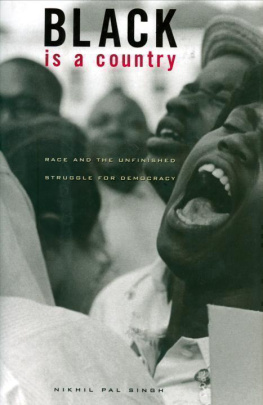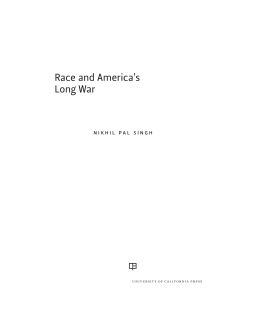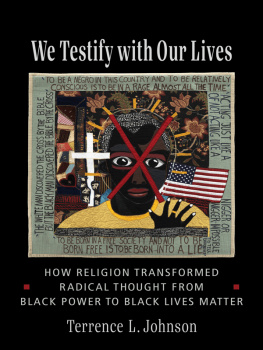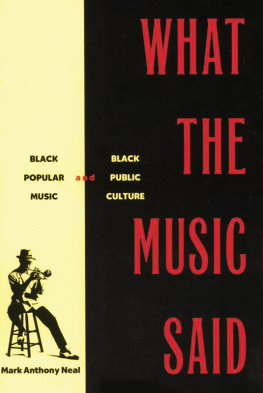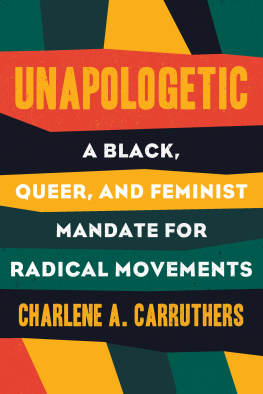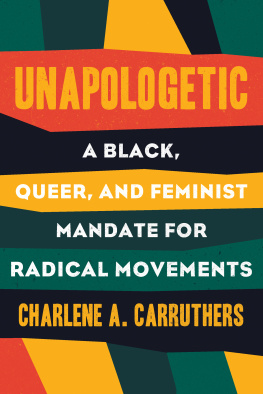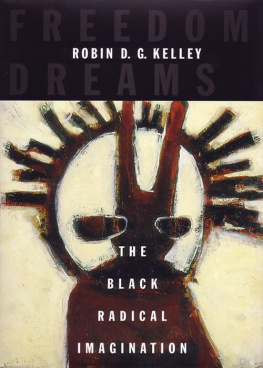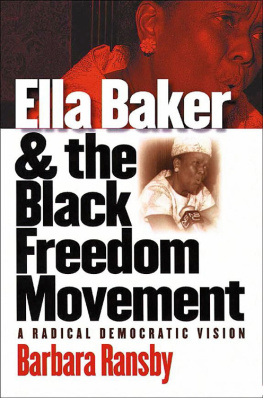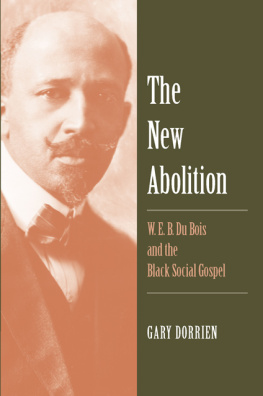Race and the Unfinished Struggle for Democracy
NIKHIL PAL SINGH



The worlds within and without the Veil of Color are changing, and
changing rapidly, but not at the same rate, not in the same way;
and this must produce a peculiar wrenching of the soul, a peculiar
sense of doubt and bewilderment. Such a double life, with double
thoughts, double duties, and double social classes, must give rise to
double words and double ideals, and tempt the mind to pretense or
to revolt, to hypocrisy or to radicalism.
-W. F. B. DU BOIS, THE SOULS OF BLA('K FOLK
The history of subaltern social groups is necessarily fragmented and episodic. There undoubtedly does exist a tendency to (at least provisional stages of) unification in the historical activity of these groups, but this tendency is continually interrupted by the activity of the ruling groups; it therefore can only be demonstrated when an historical cycle is completed and this cycle culminates in a success... only "permanent" victory breaks their subordination.
-ANTONIO GRAMSCI, SELECTIONS FROM THE PRISON NOTEBOOKS
"Black" is a country.
-LFROI JONES, HOME: SOCIAL ESSAYS
The black revolution is much more than a struggle for the rights of Negroes. It is forcing America to face all its interrelated flaws-racisfn, poverty, militarism, and materialism. It is exposing evils that are deeply rooted in the whole structure of our society... and suggests that radical reconstruction of society itself is the real issue to he faced.
-MARTIN LUTHER KIN(, JR., -A TESTAMENT OF HOPE- (1969)
Martin Luther King Jr. announced his opposition to the Vietnam War in the spring of 1967. In the court of public opinion, the response was swift-he was vilified. King's decision to break his long silence about the war was overshadowed by his assassination one year later. But as the campaign against him in the press, in Congress, among civil rights leaders, and by the FBI showed, King was neither beyond a fall from grace nor immune to allegations of sedition. Life magazine called his antiwar statements "demagogic slander" fit for "Radio Hanoi." Lyndon Johnson remarked that King was "destroying his reputation" and had finally "thrown in with the communists" (which FBI Director J. Edgar Hoover had claimed all along). Many of King's longtime supporters accused him of betrayal and wrong-headedness, saying, "Peace and civil rights don't mix."' The man who only a few years earlier had been charged with saving the soul of America was readily cast beyond the borders of acceptable discourse.2
King spoke "as a citizen of the world ... aghast at the path we have taken" and "as an American to the leaders of my own nation."' In adopting this dual stance, King tied the U.S. extension of colonial war in Vietnam to the failure to achieve racial equality and justice at home. The fear of communism, he argued specifically, had distorted the American revolutionary tradition, transforming it into a counterrevolutionary animus.4 The costs of this animus were stark: an exhaustion of precious economic resources, an elevation of violence and militarism as pre-eminent responses to human conflict, and a fatal loss of belief in the project of societal reform., "If America's soul becomes poisoned," King summarized, "part of the autopsy must read Vietnam." The patriotic conviction that had once driven him into the civil rights struggle now required him to go "beyond national allegiances."6
We can wonder whether, had King lived beyond 1968, his stature would have risen with the burgeoning peace movement, or whether he would have been diminished and eventually broken, like earlier black radicals such as Paul Robeson and W. E. B. Du Bois, by attacks that he was traitorous and un-American. King refused to see his antiwar stance in these terms or as inconsistent with his earlier views. The movement that he had come to personify was never limited to securing the rights of black people, he said. Black struggles for justice, dignity, and self-respect had always been about achieving a broader transformation of the United States into an equitable society. At the same time, where King had once extolled the uplifting power of the American Dream and cast himself in a long line of successful black strivers from Booker T. Washington to Ralph Bunche and Jackie Robinson, he now embraced the traditions of black dissidence.7 Struggling for justice as a black person in America, he said, was a calling that went beyond "race, nation or creed." In his last public address, King tellingly identified himself with Du Bois, as an activist for peace who had ended his life as an exile from the land of his birth."
Embracing what he called "a world perspective" on violence and inequality, King could no longer avoid a decisive confrontation with the ethical and political shortfalls of U.S. power abroad and the truncation of reformist commitment at home. His subsequent sermons and speeches elaborating on these views were widely aired not in the United States, but in Canada, by the Canadian Broadcasting Corporation (CBC). King opened one of these addresses with: "Over and above any kinship of United States citizens and Canadians as North Americans, there is a singular historical relationship between American Negroes and Canada. Canada is not merely a neighbor to Negroes, in our struggle for freedom, Canada was the North Star." Here, King, the chief symbol of U.S. racial-national integration, consciously deconstructed the unifying term-"United States citizens"-emphasizing that "Negroes" had a separate existence within, and a tortured relationship to, the United States as a nation. This "singular" history, he implied, made other sorts of allegiances and affiliations possible, even necessary. Indeed, King's own experience now seemed to bear this out."
Today, no figure more fully embodies the notion that racial equality is a U.S. national imperative than Martin Luther King Jr. King's most cited rhetoric tied the fortunes of blacks to the status of the U.S. nation-state and to its dominant and defining systems of belief: Christianity, liberal-individualism, and democratic-capitalism. Civil rights reforms, he argued, were urgent matters of national redemption and moral regeneration that would open up a world for individual black achievement ("the content of our character") beyond the barrier of race ("the color of our skin"). At the 1963 March on Washington, King likened the black freedom movement to a person trying to cash a check that had been repeatedly stamped "insufficient funds," defining the fulfillment of black aspirations as litmus test for the United States as an affluent, consumer society."' This is the King who is today remembered-even commemorated-with a national holiday, making him the only African American memorialized for the nation at large.
Yet this is also the King who has become part of a mythic nationalist discourse that claims his antiracist imperatives as its own, even as it obscures his significantly more complex, worldly, and radical politics. Indeed, just as King's antiwar stance has been minimized or forgotten, so has the steady incorporation of currents of democratic socialism and black nationalism into his thinking. By the end of his life, King viewed the idea of obtaining civil rights for black individuals as an inadequate framework for combating the economic consequences and cultural legacies of white supremacy. The latter, he believed, had powerfully skewed the economic and political structure of U.S. society, leading to a toleration of massive poverty at home and to an imperial arrogance in world affairs. To combat these, King argued, black people would have to "organize our strength into compelling power." This meant continuing the unfinished struggles for juridical protection and electoral influence. It also meant pursuing the more difficult project of valorizing and institutionalizing the forms of black "collective wisdom and vitality" that had accumulated through long decades of struggle.''

